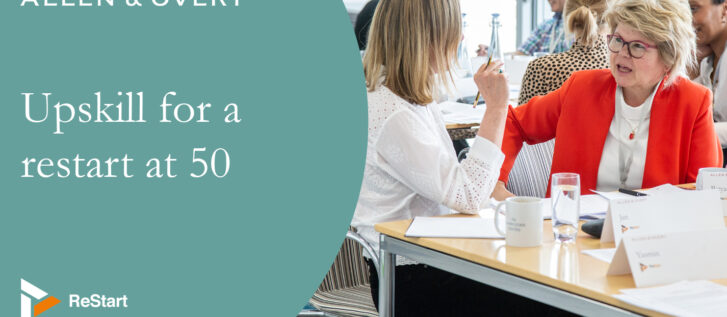Returning to work can be daunting, especially if you have had a long time off to be a stay at home parent, take care of elderly or infirm relatives or have experienced a period of ill health yourself. In this section we take a look at people who have returned to work after many years, or later in life - and we provide practical advice on how you can too as well as exploring the different options out there for getting back to work.
In this guide:
It’s increasingly common for us to take breaks in our career and return to work after a few months or even years away from the workplace. It can seem daunting, but with a bit of planning and preparation most people find that returning to work is a smooth and enjoyable process in the end.
Why do people take career breaks?
There are many reasons why people might need to take a career break. Clearly, parents take a number of months out of work when they have a baby, but many also choose to take a break to care for older children. For some, childcare is too expensive to make work economically viable, for others, being around for their youngsters takes priority.
Another common reason for career breaks is the need to care for an elderly or disabled family member. Many people in the UK are caring both for children and older family members – and are defined as being part of the Sandwich Generation.
Career breaks are also taken as planned time out from work. People are increasingly taking a mid-life gap year to travel the world and take a year out from normal life.
On the other hand, career breaks can also be the result of redundancy or unemployment, which can damage our confidence. Increasingly there are returning to work programmes to help older people back into work.
Returning to work after career break
Getting back to work after a break of a few months or more can be daunting at every step. And there are quite a few steps to work through, from finding a job through to interviews and your first day in the new role.
If you’re returning to work after sickness you will need to check with your doctor that you are well enough to work and get some guidance on the types of work and hours that would be best for your health.
You should also think about how much you’re happy to share with prospective employers about your prior illness, as this is personal information. Most interviewers will expect you to explain any absence from work of more than a few weeks, but the level of detail is up to you.
Finding a new job after a career break
First, you need to search for and find a new role. You will need to decide what sort of field you want to work in – which may or may not be the same as your previous job role. You also need to decide whether you’re looking for part time or full time work.
Next you need to seek out and apply for suitable jobs. Whether you’re returning to work part time or full time, most job sites make it easy to search for vacancies according to hours, location, skills and sectors.
You might find our tips on finding part-time jobs useful.
Applying for jobs after a career break
Once you’ve identified some suitable jobs you need to apply, which usually means supplying your CV. Getting your CV right is crucial, as recruiters make their initial shortlist of job candidates purely based on a quick look at each CV. There are some great tips here.
Any CVs with unexplained time gaps are likely to be rejected, so make sure you give an account for the past 15-20 years of work, explaining any gaps. Even if you’re returning to work after a long career break, you should state the reason behind it. This article on explaining gaps in your CV is helpful.
Don’t let recruiters get away with rejecting you based on age, by reading this feature on avoiding age discrimination on your CV.
Returning to work after retirement
It’s increasingly common for people to retire and then decide that they would like to return to work, sometimes on a part time basis. There’s no reason why you can’t do this, and many people like the option to supplement their pension with an income.
If you are on a low income after retiring, it’s worth checking whether you might be eligible for pension credit, as awareness of this particular benefit is generally quite low.
Tips on returning to work after a career break
Once you’ve successfully found yourself a new job, you may be feeling nervous about your first day back at work. There are a few ways to make sure it goes smoothly:
- Practice the journey. Before you start work it’s worth doing a trial run at the time you will normally start work. It will help you avoid being late by understanding what the traffic or public transport is like on a typical day.
- Set off early. It’s definitely better to arrive too early rather than late on your first day, so add some extra contingency time.
- Be friendly. Make sure you smile at everyone you meet and are introduced to. It pays to make a good first impression.
- Ask questions. Asking questions is both a great way to start conversations with your colleagues and to find out how to do all the things required of you. People won’t expect you to know everything. Just be careful not to question the same people relentlessly!
- Relax. Your first few days in a new job are actually some of the easiest. You won’t be expected to achieve too much, so take the time to settle in and learn the ropes.
If you’re struggling to return to work
If you haven’t been able to find a suitable job, there are some other routes into work to consider, such as retraining, volunteering and apprenticeships for older people.
It may also be helpful to have a recruiter review your CV and advise you on how to improve it. Speak to a recruitment agency for support.









